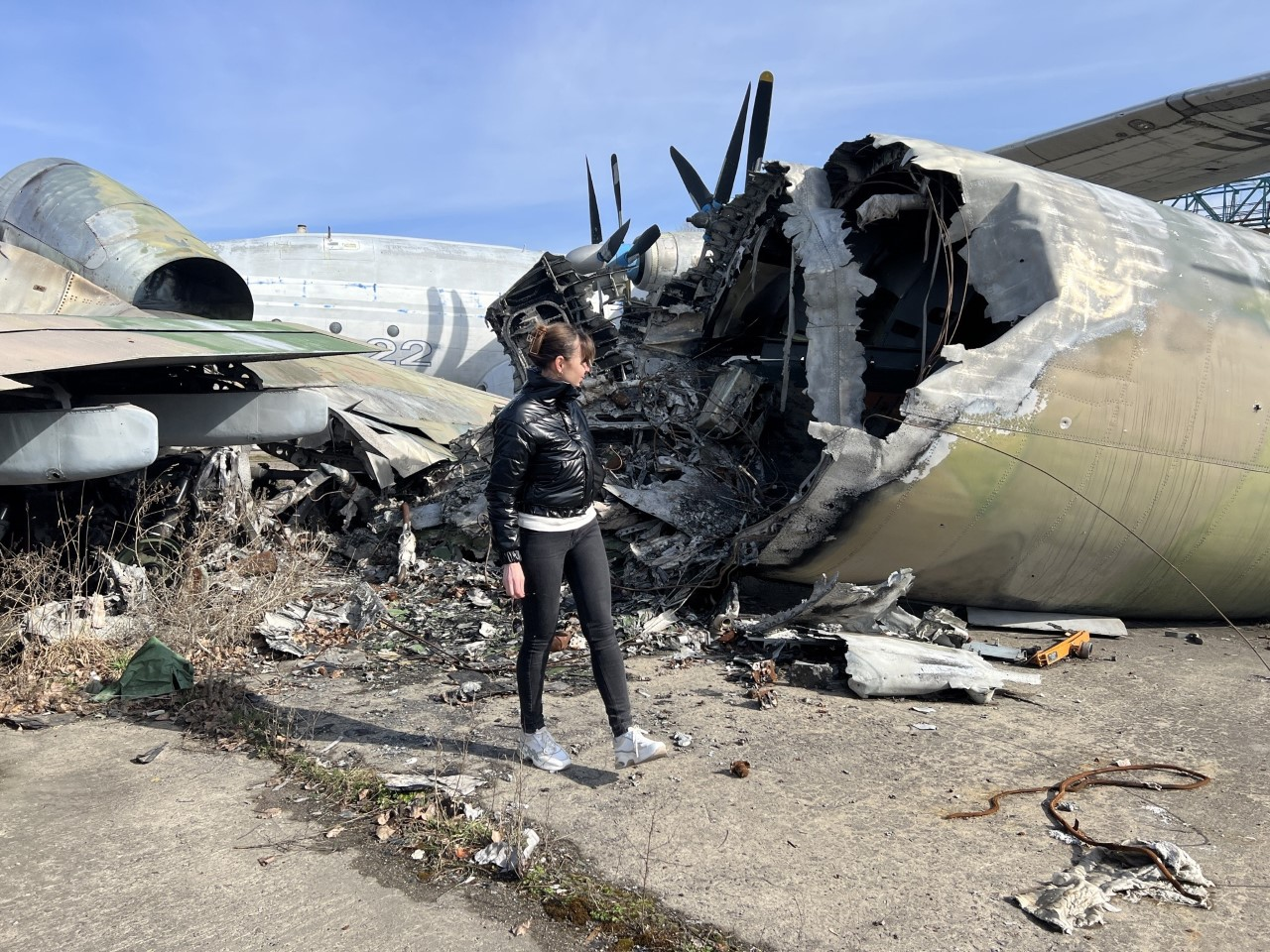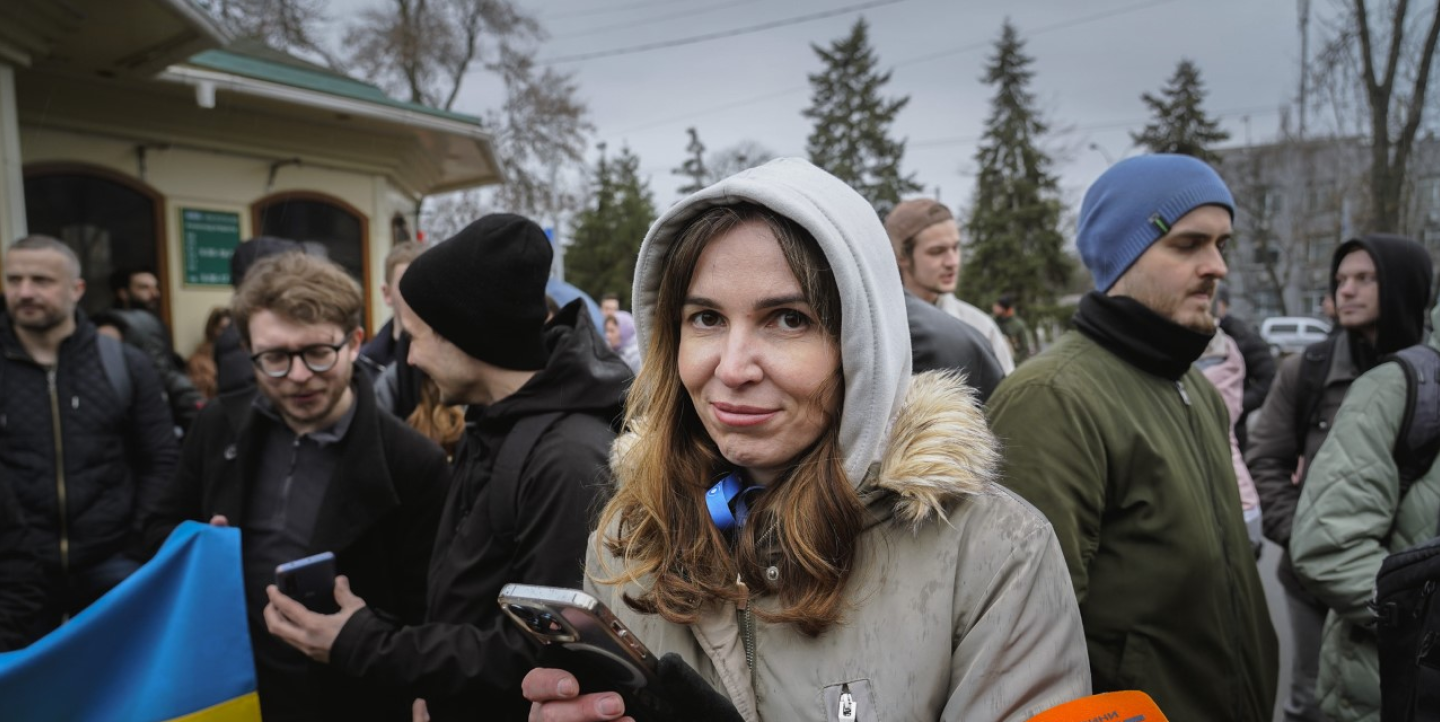Seventeen years ago, Galyna Ostapovets walked into the editorial office of a regional newspaper in the western Ukrainian city of Rivne and declared she wanted to work for them. She was a second-year college student at the time with no journalism experience.
The editor, instead of sending her out the door, gave her a series of tasks to complete. Ostapovets gave up, however, feeling overwhelmed by the work. Journalism was not for her, she’d decided.
Yet two months later, Ostapovets walked back into the same editorial office, this time with an idea for an article, about public transportation. This pitch would become her first published piece. Almost two decades later she’s still reporting, now on the war at home.
Ostapovets is one of millions of people whose lives were upended when Russia launched its full-scale invasion of Ukraine in February 2022. At work, she had been reporting on politics, but shifted to covering the war and its consequences on the Ukrainian people. Today she’s a “journalist on life and war,” she says, writing for Novyny Live and creating videos for their YouTube channel.
This is how she fights for Ukraine – reporting and writing, and spreading awareness about Russia’s war on her native country.
I spoke with Ostapovets about her experience as a journalist in Ukraine, how the Russian invasion has affected her career, and her advice for other reporters covering the war.
What advice do you have for journalists covering Russia's war on Ukraine one year after the start of the full-scale invasion?
The work of a journalist in Ukraine is not five [out of] seven days a week, and not eight to nine hours a day. Often, you have to work overtime and without days off. It’s important to not to be shy about taking days off – vacations and taking time for yourself – playing sports, running, going to a restaurant and generally giving yourself the opportunity to relax without remorse.
It's hard to learn, but it's really important. There is no way without it now.

How has your reporting changed in the past year?
Since February 24, 2022, all of my articles are about the war, about the consequences of the war, and about [its] human tragedies. The latter in Ukraine are an incredible number. Some of these stories are so tragic that even the most brilliant screenwriter in the world would never come up with such a thing.
For example, I wrote about the death of two brothers who together went through half a year of the war in Bakhmut – the hottest point of the war in Ukraine – and died due to a drone strike in the liberated territory of the Kherson region.
And the death of a 60-year-old woman in the Kyiv region at the grave of her husband. This happened during another massive missile attack on Ukraine last fall. During the air raid, a woman came to see her late husband and died at his grave due to rocket fragments.
There are hundreds, if not thousands, of such stories.
How has the war changed your idea of yourself as a journalist?
Before the war, I was more involved in covering the political agenda in Ukraine and a little in the [outside] world. I also traveled to the Donbas, where Russia has been at war since 2014.
But working in a war and living in a war are completely different things. The war in your home is very scary. Perhaps it was this understanding that changed the idea of me as a journalist. How exactly, it's hard for me to answer. I still live in the war – the war and the victory of Ukraine.
I would say that now a journalist must be able to do a lot of things and must know a lot of things. I realize that it is ignorance that kills. Even literally. If you don't know how to behave during shelling, you can die. If you don't know how to put a tourniquet on yourself you will bleed to death if you are wounded.
Therefore, I go through various trainings and exercises in military journalism and tactical medicine.
How has IJNet helped your career?
IJNet is a good resource for journalists from all over the world. I've known of it for two years now, but I became a regular reader about a year year ago, at the end of February, 2022, after Russia's invasion of Ukraine. I was looking for new development opportunities, and started cooperation with the resource.
My articles for IJNet are mainly about the work of Ukrainian journalists in Ukraine now, during the war. This is a very interesting experience, [and] I hope it will also be useful for colleagues from other countries.
[IJNet] also helped me participate in the course from the German non-governmental organization, IDEM, called "Journalism in Conflict - Responsibility, Security and Physical, Psychological and Digital Protection." In connection with the Russian war on Ukraine, all the knowledge that I received there was very useful.
Photos taken by Oleg Pereverzev.


